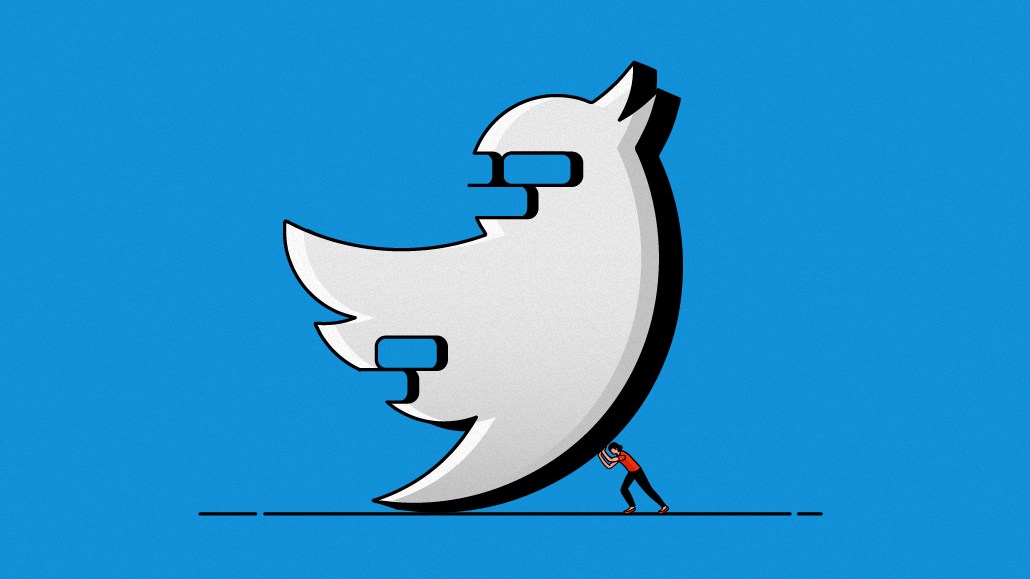Secure your place at the Digiday Media Buying Summit in Nashville, March 2-4
Elon Musk aims to charm marketers with vow to focus on ‘compelling’ Twitter content and transparency

The centerpiece of the first day of the inaugural Possible conference in Miami Beach took place yesterday when Elon Musk — the polarizing but brilliant founder of Tesla and Starlink, and current owner of Twitter — took to the main stage to offer up his version of what Twitter is doing to address the concerns of brand marketers about brand safety on the platform.
In a conversation with NBC Universal’s global chair of advertising & partnerships Linda Yaccarino — who is seen by many as a possible candidate for the CEO position at Twitter, which is currently occupied by his dog Floki — Musk talked of championing citizen journalism while also deriding mainstream media, vowing he would be treated the same way as anyone else on Twitter, and promising freedom of speech while limiting hate speech through a series of community controls.
“People may not be aware of this already, but we have adjacency controls in place that are really quite effective,” Musk told the packed mainstage room where hundreds recorded his comments on their cell phone cameras even after it was rumored that electronic recordings of the session somehow would not be permitted. Additionally, Musk took a handful (several overly fawning), questions from the audience after it was expressly said he would do no such thing.
Whether Musk, who charmed the audience and even got applause for his freedom of speech position, holds true to his words remains to be seen. He certainly tried to woo the roomful of marketers with some of his messaging. “Advertising goes all the way from spam to compelling content,” he said. “And I really want to focus on obviously the compelling content, to make it relevant, make it interesting.”
Rishad Tobaccowala, an author, speaker and advisor who for decades was a high-ranking executive with Publicis Groupe, offered his thoughts on Musk’s comments in a video segment below with Digiday immediately following the Twitter owner’s session with Yaccarino.
More in Media

Media Briefing: Turning scraped content into paid assets — Amazon and Microsoft build AI marketplaces
Amazon plans an AI content marketplace to join Microsoft’s efforts and pay publishers — but it relies on AI com stop scraping for free.

Overheard at the Digiday AI Marketing Strategies event
Marketers, brands, and tech companies chat in-person at Digiday’s AI Marketing Strategies event about internal friction, how best to use AI tools, and more.

Digiday+ Research: Dow Jones, Business Insider and other publishers on AI-driven search
This report explores how publishers are navigating search as AI reshapes how people access information and how publishers monetize content.








